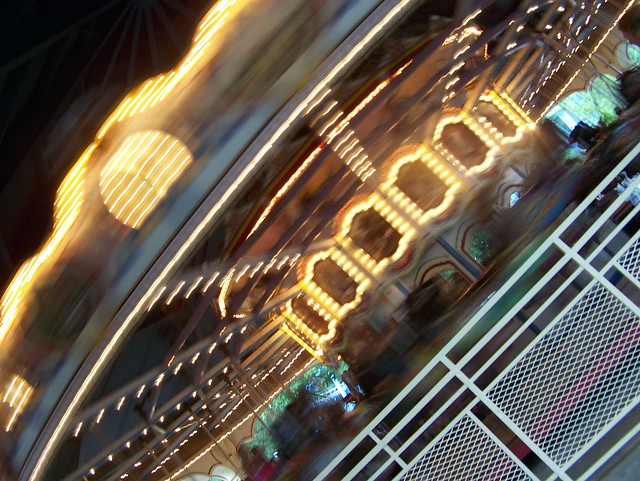 |
| © 2007 Myshelle Robinson, Flickr | CC-BY-ND | via Wylio |
Every day I would get up and have coffee and walk slowly to the sofa where I would stay until bedtime. Many TV shows were out either because they had fast-paced action that made me dizzy or the drama made me anxious, which made me dizzy. Reading was out, emailing was out and talking on the phone was out (not sure why that made me dizzy, but it did.) I listened to a LOT of audiobooks to keep from going crazy. I also found that I could do jigsaw puzzles on the tablet. Those two things were pretty much my only distractions for a while until I found enough shows on Netflix that I could watch.
Other things that made me dizzy:
- Moving around
- Bending over or looking up
- Nodding or shaking my head (yes or no)
- Stress and anxiety
- Getting tired
- Riding in a car (I stopped driving really early on)
- Conversations
- Most games and apps on phone or tablet.
- Going outside
Then, there's the emotional aspect. Foremost is the fear and confusion. You don't understand what is happening to you or why such simple things are making you dizzy and you don't know how to fix it. And let's face it - you try to explain to someone why you can't work and you're sure they're trying not to roll their eyes, thinking "You can't work because you get dizzy?" It's very hard to explain and for others to understand. Also, as I mentioned in the How PPPD Develops post, my life became smaller and smaller. Whereas I used to host family events at holidays, now I couldn't even attend them. I couldn't see my grandchildren or even leave the house except to go to the doctor, which was an ordeal. It's depressing and extremely frustrating. And because you don't know what this is, you don't know if there's a way out.
The good news is that there is a treatment. Once you get diagnosed, you will begin vestibular rehabilitation, which will help stop the downward spiral and help you begin to spiral back upward. I will tell about both those things very shortly.
I would love to hear your comments and questions. And if you like this post, please share it using the buttons below. Thanks


I can totally relate to you. Below is my story.
ReplyDeleteI have PPPD, my symptoms started in 2014 but was not diagnosed until 2016 at Mayo Clinic.
I have 24/7 dizziness, unable to work, unable to drive, when riding in vehicle I have to wear eye mask (sleep mask). If I look forward while riding I get very nauseated and get sick. I walk with a cane and look down. If I look forward I will get sick. Any movement (standing up, walking) or exertion (picking anything up) makes my dizziness worsen. I have problems watching tv, looking at computer, and reading. Since I was unable to work, I had to file for disability. Because I have lost all "quality of life" I have severe depression, and have been hospitalized twice for suicidal thoughts. I am going to group therapy now trying to cope with 24/7 dizziness.
Any help on coping skills with PPPD would be greatly appreciated.